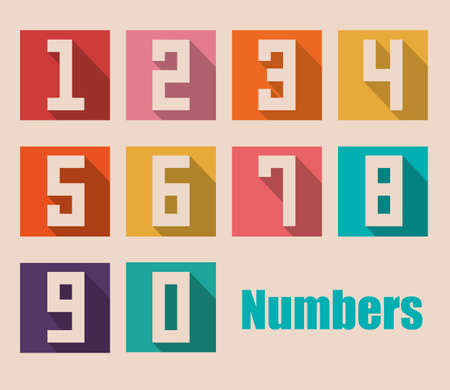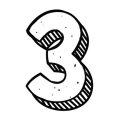1. Understanding the Basics of Heavenly Stems and Earthly Branches
If you’re new to Bazi, also known as the Four Pillars of Destiny, you might be curious about the “Heavenly Stems” and “Earthly Branches” and why they matter in your chart. These ancient concepts come from Chinese metaphysics and form the backbone of Bazi readings. Let’s break down these ideas in a way that makes sense, even if you’re just starting out.
What Are Heavenly Stems?
The Heavenly Stems are a set of ten elements used in Chinese metaphysics to represent different types of energy. Each stem is tied to one of the Five Elements—Wood, Fire, Earth, Metal, or Water—and each element has both a yin and yang version. Think of them like different “flavors” or “styles” of energy that appear in your birth chart.
| Heavenly Stem | Element | Yin/Yang |
|---|---|---|
| Jia | Wood | Yang |
| Yi | Wood | Yin |
| Bing | Fire | Yang |
| Ding | Fire | Yin |
| Wu | Earth | Yang |
| Ji | Earth | Yin |
| Geng | Metal | Yang |
| Xin | Metal | Yin |
| Ren | Water | Yang |
| Gui | Water | Yin |
What Are Earthly Branches?
The Earthly Branches are a group of twelve symbols that correspond with animals from the Chinese zodiac and also connect to the Five Elements. These branches are often used to mark time—like years, months, days, and hours—in your Bazi chart. Each branch carries its own set of characteristics based on both its animal and its elemental association.
| Earthly Branch | Zodiac Animal (US English) | Main Element(s) |
|---|---|---|
| Zǐ (Zi) | Rat | Water (Yang) |
| Chǒu (Chou) | Ox | Earth (Yin), Water, Metal |
| Yín (Yin) | Tiger | Wood (Yang), Fire, Earth |
| Mǎo (Mao) | Rabbit | Wood (Yin) |
| Chén (Chen) | Dragon | Earth (Yang), Wood, Water |
| Sì (Si) | Snake | Fire (Yin), Earth, Metal |
| Wǔ (Wu) | Horse | Fire (Yang), Earth |
| Wèi (Wei) | Goat | Earth (Yin), Wood, Fire |
| Shēn (Shen) | Monkey | Metal (Yang), Water, Earth |
| You (You) | Rooster | Metal (Yin) |
| Xū (Xu) | Dog | Earth (Yang), Fire, Metal |
| Hài (Hai) | Pig | Water (Yin), Wood |
The Role of Stems and Branches in Your Bazi Chart
Your full Bazi chart is made up of four columns: year, month, day, and hour. Each column has a Heavenly Stem on top and an Earthly Branch below. This creates a total of eight characters—four stems and four branches—which is why it’s called “Bazi” or “Eight Characters.” By understanding how these stems and branches interact, you can start to see the unique energetic blueprint that shapes your personality, strengths, challenges, and life path.
A Quick Recap for Beginners
– The Heavenly Stems represent different energies or elements in their yin or yang form.
– The Earthly Branches combine animal signs with elemental influences.
– Together, they make up your Bazi chart’s structure and tell a story about who you are at your core.
Diving deeper into each stem and branch will help unlock more meaning in your personal Bazi reading. In the next part, we’ll look at how these elements actually show up in your chart and what they mean for your everyday life.
2. How to Identify Heavenly Stems and Earthly Branches in Your Bazi Chart
If you’re new to Bazi, the idea of “Heavenly Stems” and “Earthly Branches” might sound mysterious. But with a few simple steps, you can learn how to spot these elements in your own chart using your birth data. Here’s how you can do it, along with some tips for using resources that are easy to understand for American readers.
What Are Heavenly Stems and Earthly Branches?
Bazi (Four Pillars of Destiny) is based on your birth year, month, day, and hour. Each pillar is made up of two parts: a Heavenly Stem and an Earthly Branch. In total, there are 10 Heavenly Stems and 12 Earthly Branches, which combine to form the “DNA” of your chart.
Table: The Ten Heavenly Stems and Twelve Earthly Branches
| Heavenly Stems | Pinyin (Pronunciation) | Element | Earthly Branches | Pinyin (Pronunciation) | Zodiac Animal |
|---|---|---|---|---|---|
| Jia | jiǎ | Yang Wood | Zi | zǐ | Rat |
| Yi | yǐ | Yin Wood | Chou | chǒu | Ox |
| Bing | bǐng | Yang Fire | Yin | yín | Tiger |
| Ding | dīng | Yin Fire | Mao | mǎo | Rabbit |
| Wu | wù | Yang Earth | Chen | chén | Dragon |
| Ji | jǐ | Yin Earth | Si | sì | Snake |
| Geng | gēng | Yang Metal | Wu (午) | wǔ | Horse |
| XIn | xīn | Yin Metal | Wei | wèi | Goat |
| Ren | rén | Yang Water | Shen | shēn | Monkey |
| Gui | guǐ | Yin Water | You | yǒu | Rooster |
| Xu | xū | Dog | |||
| Hai | hài | Pig |
Your Birth Data: The Key to Your Four Pillars (Bazi) Chart
Your Bazi chart is created using your date and time of birth. Each pillar is calculated as follows:
- The Year pillar comes from your birth year.
- The Month pillar comes from your birth month (according to the lunar calendar).
- The Day pillar is based on your exact birth date.
- The Hour pillar depends on the two-hour period you were born in.
An Example of a Bazi Chart Layout:
| Pillar Name | Pillar Position in Chart (from left to right) | Description/Significance in Life Areas (American-friendly) | |||||||||||||||||||||||||
|---|---|---|---|---|---|---|---|---|---|---|---|---|---|---|---|---|---|---|---|---|---|---|---|---|---|---|---|
| Year Pillar (Heavenly Stem + Earthly Branch) | Pillar 1 (leftmost) | Ancestry, early family influence, social circle. | < /TR >< TR >< TD >Month Pillar|||||||||||||||||||||||||
| Pillars in Your Chart (Left to Right) | |||||||||||||||||||||||||||
|---|---|---|---|---|---|---|---|---|---|---|---|---|---|---|---|---|---|---|---|---|---|---|---|---|---|---|---|
| Year Pillar (Stem + Branch) [e.g., Jia Zi] |
Month Pillar (Stem + Branch) [e.g., Bing Yin] |
Day Pillar (Stem + Branch) [e.g., Ding Mao] |
Hour Pillar (Stem + Branch) [e.g., Xin Si] |
||||||||||||||||||||||||
| Heavenly Stem | Jia | Bing | Ding | Xin | |||||||||||||||||||||||
| Earthly Branch | Zi (Rat) | Yin (Tiger) | Mao (Rabbit) | Si (Snake) | |||||||||||||||||||||||
| Pillar Position | Main Life Area | Zodiac Animal Example | |||||||||||||||||||||||||
|---|---|---|---|---|---|---|---|---|---|---|---|---|---|---|---|---|---|---|---|---|---|---|---|---|---|---|---|
| Year Pillar | Ancestry/Social Connections | Rat/Dragon/Horse/etc. | |||||||||||||||||||||||||
| Month Pillar | Main Career Environment/Parents | Tiger/Rabbit/Snake/etc. | |||||||||||||||||||||||||
| Day Pillar | Yourself/Marriage Dynamics | Pig/Ox/Dog/etc. | |||||||||||||||||||||||||
| Hour Pillar | Aspirations/Children/Future Plans | Sword/Goat/Monkey/etc. |
| Stem | Element | Yin/Yang | Personality Traits |
|---|---|---|---|
| Jia (甲) | Wood | Yang | Direct, pioneering, strong-willed |
| Yi (乙) | Wood | Yin | Flexible, gentle, diplomatic |
| Bing (丙) | Fire | Yang | Passionate, open, energetic |
| Ding (丁) | Fire | Yin | Sensitive, insightful, warm-hearted |
| Wu (戊) | Earth | Yang | Reliable, steady, protective |
| Ji (己) | Earth | Yin | Nurturing, practical, supportive |
| Geng (庚) | Metal | Yang | Courageous, determined, straightforward |
| Xin (辛) | Metal | Yin | Eloquent, refined, precise |
| Ren (壬) | Water | Yang | Clever, resourceful, adventurous |
| Gui (癸) | Water | Yin | Mysterious, intuitive, adaptable |
The Twelve Earthly Branches: The Cycle of Time and Nature
The Earthly Branches connect to both animals from the Chinese Zodiac and to the Five Elements. They reflect patterns in nature and human behavior.
| Branch (Zodiac Animal) |
Pinyin/Chinese Character | Main Element | Add’l Elements | Main Personality Traits | |||||||||||||||||||||||
|---|---|---|---|---|---|---|---|---|---|---|---|---|---|---|---|---|---|---|---|---|---|---|---|---|---|---|---|
| Rat | Zǐ / 子 | Water | – | Clever, social, alert | |||||||||||||||||||||||
| Ox | Chǒu / 丑 | Earth | Water/Metal | Diligent, steady, patient | |||||||||||||||||||||||
| Tiger | Yín / 寅 | Wood | Fire/Earth | Courageous, ambitious, confident | |||||||||||||||||||||||
| Rabbit | Mǎo / 卯 | Wood | – | Tactful, gentle, creative | |||||||||||||||||||||||
| Dragon | Chén / 辰 | Earth | Wood/Water | Lucky, charismatic, dynamic | |||||||||||||||||||||||
| Snake | Sì / 巳 | Fire | |||||||||||||||||||||||||
| Goat | Wèi / 未 | Earth | Fire/Wood | Kind-hearted,gentle,artistic | |||||||||||||||||||||||
| Monkey | Shēn / 申 | Metal | Water/Earth | Inventive,clever,adaptable | |||||||||||||||||||||||
| Rooster | Yǒu / 酉 | Metal | – | Confident,precise,organized | |||||||||||||||||||||||
| Dog | Xū / 戌 | Earth | Fire/Metal | Loyal,honest,protective | |||||||||||||||||||||||
| Pig | Hài / 亥 | Water | Wood | Generous,compassionate,peaceful |
The Connection with the Five Elements (Wu Xing)
Bazi is all about balance between Wood, Fire, Earth, Metal and Water. Both Heavenly Stems and Earthly Branches carry these elements in different forms. By looking at which stems and branches show up most often in your chart—or which ones are missing—you can spot strengths and weaknesses in your personality or life path.
A Quick Example: What It Means for You?
If your chart has a lot of Fire stems and branches (like Bing or Wu), you might be outgoing and passionate but need to watch out for burning out. If you’re heavy on Water (like Ren or Gui), you could be adaptable and creative but may struggle with indecision. Knowing these meanings helps you see where you shine—and where you can grow!
4. Interpreting Relationships between the Stems and Branches
Understanding the Dynamics: Interactions, Combinations, and Clashes
The Heavenly Stems and Earthly Branches in your Bazi chart arent just individual characters—they interact with each other in meaningful ways. These interactions shape real-life experiences like relationships, work life, and even your well-being. Lets break down these connections using simple terms and relatable American scenarios.
What Are Combinations and Clashes?
In Bazi, “combinations” happen when certain Stems or Branches team up to create harmony or new energy. “Clashes” occur when they oppose each other, leading to tension or sudden changes. Think of it like people at a dinner party—some get along instantly, while others may have conflicting opinions.
Common Stem and Branch Relationships
| Type | Description | American Example |
|---|---|---|
| Combination | Two elements join forces for mutual benefit | A successful business partnership or a harmonious marriage |
| Clash | Elements oppose each other, causing disruption | A challenging coworker relationship or sudden job change |
| Punishment | Tension without direct conflict; subtle disharmony | A passive-aggressive friendship or family drama during Thanksgiving dinner |
| Harm/Destruction | One element weakens another, leading to loss or stress | Losing motivation at work due to burnout or unhealthy habits affecting health |
How Do These Relationships Affect Your Daily Life?
Relationships & Love Life
If your chart shows combinations between romantic-related Branches (like the Day Branch and Month Branch), you might experience more harmony in dating or marriage. On the flip side, clashes could signal relationship challenges—maybe a period of miscommunication with your partner or unexpected changes in your social circle.
Career & Work Environment
A combination between career-related Stems can mean good teamwork or finding a mentor at work. A clash might point to office politics, competition for promotions, or even being transferred to a different department suddenly—something many Americans can relate to in fast-paced workplaces.
Health & Wellness Impact
If certain Branches clash in your chart that represent health (like Earth vs. Water), you might be more prone to stress-related issues—think headaches after long meetings or catching a cold after working overtime. Positive combinations can indicate periods where your energy and immune system are strong.
Quick Reference Table: Real-Life Examples of Stem & Branch Interactions
| Bazi Interaction Type | Real-Life Scenario (U.S.) | Potential Outcome |
|---|---|---|
| Combination (Wood + Water) | You and a coworker complement each others skills on a project | Team success and recognition from management |
| Clash (Fire vs. Metal) | An argument with a friend over political views during July 4th BBQ | Tension but possible growth if resolved maturely |
| Punishment (Earth Punishing Earth) | Siblings disagreeing about care for aging parents—no outright fight, but ongoing tension at family gatherings | Long-term stress unless addressed openly |
| Destruction (Water destroys Fire) | Binge-watching late-night TV affects your sleep schedule before an important presentation | Lack of focus at work; need to rebalance habits |
By recognizing how your Heavenly Stems and Earthly Branches interact, you can make more informed choices in relationships, career moves, and self-care—all tailored for everyday American life.
5. Applying Stems and Branches Interpretations to Your Daily Life
Now that you understand the basics of the Heavenly Stems and Earthly Branches in your Bazi chart, it’s time to put this knowledge into action. The goal isn’t just to know these ancient symbols, but to use them as a tool for making better choices in your everyday life—whether it’s at work, in your relationships, or for personal growth. Here are some practical ways American readers can relate Bazi insights to real-life situations:
Work & Career Decisions
If your chart shows a strong Wood element (one of the Five Elements represented by certain Stems and Branches), you might thrive in creative fields like marketing, design, or education. On the other hand, if Metal is dominant, you may find fulfillment in structured environments such as finance, law, or engineering. Recognizing these tendencies can help guide your job search or career development.
| Element | Typical Strengths | Suggested Careers |
|---|---|---|
| Wood | Creativity, Growth | Teacher, Designer, Writer |
| Fire | Passion, Leadership | Entrepreneur, Chef, Public Speaker |
| Earth | Stability, Supportive Nature | Counselor, Manager, Real Estate Agent |
| Metal | Discipline, Precision | Engineer, Lawyer, Analyst |
| Water | Adaptability, Communication Skills | Salesperson, Researcher, Therapist |
Love & Relationships
The interactions between Stems and Branches can reveal relationship patterns. For example, if your chart features “clashing” Branches (like Rat and Horse), you might experience more ups and downs in partnerships. Understanding this can encourage you to practice better communication and patience with loved ones.
Everyday Example: Navigating Relationship Clashes
If your partner’s Branch tends to “control” yours (for instance, their Fire controls your Metal), try balancing the relationship by focusing on mutual respect and compromise. This can turn potential conflicts into opportunities for deeper understanding.
Personal Growth & Self-Improvement
Your Day Master (the main Stem representing you) gives clues about your core personality. If you’re a Yang Water type—symbolizing adaptability—you may excel at going with the flow but struggle with indecision. Setting clear goals each week can help channel that flexibility into productivity.
Bazi-Inspired Goal Setting Table:
| Bazi Type | Strength to Leverage | Pitfall to Watch Out For | Weekly Goal Idea |
|---|---|---|---|
| Yang Wood | Energized & Driven | Impatience | Practice mindfulness daily for 10 minutes. |
| Yin Fire | Caring & Inspiring Others | Sensitivity to Criticism | Journal one positive interaction per day. |
| Yang Metal | Loyalty & Integrity | Rigidity in Thinking | Try a new hobby or activity this week. |
| Yin Water | Clever Problem-Solving Skills | Tendency to Overthink | Create a simple daily decision checklist. |
The American Context: Making Bazi Work for You Here & Now
You don’t have to change your whole lifestyle overnight—start by noticing how certain decisions feel when they align with your Bazi elements. For instance, if you’re facing a tough choice at work and your chart suggests you thrive on teamwork (Earth element), consider collaborating rather than going solo. Or if you’re an independent Fire type struggling with burnout, block out time each week for self-care activities like hiking or meditation.
Bazi’s Heavenly Stems and Earthly Branches aren’t just abstract concepts—they can be practical guides for living a more intentional life right here in America.



